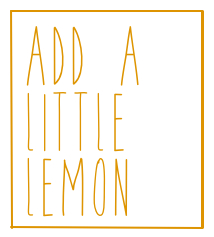ABOUT
Sara Leana Ahmad is an Iraqi-American educator, storyteller, and keeper of family traditions; hoping to reframe the Orientalist narrative of Iraq through our shared humanity: food.
Read this Interview with Ajam Media Collective:
Add A Little Lemon: The Food Blog Bringing Iraqi Cuisine Straight To Your Table
She’s hosted numerous Pop Ups from Los Angeles to Beirut, was a Saveur Blog Award finalist, has been featured in Food 52, Buzzfeed, Chalkboard, and Middle East Eye, among others, as well as, the cookbook anthology A House With a Date Palm Will Never Starve.
She is currently working on a cookbook and a collection of vignettes.
FOOD
STORIES
FROM THE
DIASPORA
It’s a strange and interesting thing to be a first generation American. It’s a sad and lonely and bittersweet thing at times, too.
You may find yourself born and raised in, say, Los Angeles, and, naturally, very, very American; but let’s say you don’t have an accent in public but maybe you have a bit of one at home, speaking in the same rhythmic tones of your parents’ language, say, Arabic, and sometimes even bits of Turkman, and cursing always in their language, but not even the cool hip words kids use these days, but the softer words your parents used because, after all, you’re only children and it was a different time then.
You may have unconsciously or consciously developed your own ways to fit in at school or work or parties, maybe omitting your last name or Muslim identity from conversation, or maybe secretly spending years diligently working on your enunciation, you know, those years reading aloud to yourself in your room to hear the words come out as Hollywood as possible.
And, you see, you grew up in a house with parents from, in my case, the Middle East, specifically Iraq -- the Iraq that people always have an opinion about at dinners, the Iraq we’ve been intermittently at war with since I was in first grade -- with a different language, different foods, different rules than the rest of your friends. And even if you mainly answered back in English, you still inherited all the sounds and rhythm and feeling of the language, the pain and beauty of the language, too.
It’s as if you have two feet firmly planted in American soil, because, hey, that’s what you know, and yet there is one emotional ghost-leg dangling, reaching, searching for some distant place you may never see in your own lifetime but contributes so heavily to your makeup.
My dad always says “Don’t visit Iraq -- you’ll think me and your mother are liars.” And you know, Iraq has unfortunately been put through so much devastation, haramat, as it is, of course, a country that has the inherent misfortune of rich soil. For now, it seems it is no longer allowed to be the prosperous country of my parents’ youth; and it is this Iraq, their Iraq, the Iraq of the fifties, sixties, even seventies, where my heart searches for belonging.
It’s a sad and lonely and bittersweet thing at times, too, this business of being first generation.
BIL ’AFYA |
BON APPETIT
There is something to be said for the way food connects us, guides us, moves us. What we eat often dictates our moods, our anxieties, our energy.
How we eat, whether at a table with family or in a car on the way to work, says a lot about how we interact with the world. Some people love eating delicious meals, others eat only for sustenance. There are people who don't eat meat, who only eat meat, who eat like a caveman, who swear off gluten and dairy, who eat organic, who mourn twinkies. Most people feel very strongly about food. We get defensive, assertive, judgemental. Food science is always in flux, and oftentimes promotes eating fortified cereals rather than an apple. Food is always confusing and always relevant.
For me, only when I started cooking did I learn to truly delight in food. Although I live in Los Angeles, my parents grew up in Iraq and I learned how to eat from them. In our culture, as in many non-Western cultures, food is a central part of family life. When possible we would eat at a table, together. There are usually grains or legumes, meat, and tons of vegetables at every shared meal. When we sat for dinner -- since lunch was always reserved for school or work -- we sat for hours eating, talking, arguing, laughing. Meals were relaxed, never rushed. I was a vegetarian from 18 until 26, with a year as a vegan and a summer eating meat. When I was 27 I decided to become what Michael Pollan calls a "flexatarian," which involves eating mostly plants (vegetables, fruits, intact grains, legumes) and sometimes organic, pastured meats and wild fish.
When I travel I try anything at least once. Generally, I stay away from processed foods, but still eat chocolate and baguettes, sometimes together. A cup of coffee every morning. And most of the time I don't stress about it. Everyone is different, and this is what has been working best for me. Sometimes I will eat things that are probably not in my best interest, and I usually make bad decisions when I'm really hungry. But I'm only human. I'm okay with that.
And remember,
if you add
a little lemon,
it’ll probably
taste better.
❤ Sara
When I started this blog in 2009, I was just beginning to interpret and understand what food meant to me. I was very interested in how food culture had changed over centuries and from culture to culture; and how food politics affected what I purchased. So, here I am, once again to motivate myself, and hopefully inspire others, to delight in food and everything that surrounds it; that is, life.



